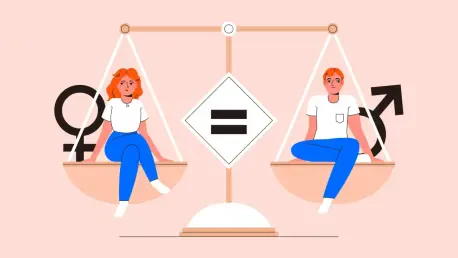In a remarkable turn of events, a coalition of Tennessee and 17 other conservative states decided to withdraw their legal challenge against the U.S. Equal Employment Opportunity Commission (EEOC). This lawsuit was initially filed in response to the EEOC’s April 2024 guidance, which interpreted Title VII of the Civil Rights Act to include harassment protections based on sexual orientation and gender identity. The recent decision marks a pivotal moment in the ongoing debate over the boundaries of federal and state authority in defining and implementing employment discrimination laws, sparking discussions on how gender is defined within the workplace.
The Controversial Texas Ruling
Legal Implications and Federal Authority
The lawsuit’s dismissal followed a significant ruling by Judge Matthew Kacsmaryk from a Texas district court, which broadly impacted national policy concerning gender identity in the workplace. The Texas court’s judgment declared that the EEOC had overreached its authority by interpreting the term ‘sex’ to encompass gender identity and sexual orientation, claiming that Title VII did not explicitly prevent workplace policies distinguishing between men and women. This legal decision effectively reshaped how Title VII is interpreted at both state and national levels, prompting changes in guidance from the EEOC itself.
Such a ruling amplified ongoing tensions between federal efforts to expand protections and states’ desires to maintain control over such definitions. Acting Chair Andrea Lucas, signaling a shift in the EEOC’s direction, indicated compliance with the Texas court’s decision without contest. This acquiescence highlighted a revised approach by the Commission, which included retracting the guidance issued in the previous year. These developments revealed the complexities of balancing nationwide policies with jurisdictional authority, underscoring how judicial decisions can influence policy trajectories.
Reaction of the Conservative States
The joint action of Tennessee and its allied states after the Texas ruling highlighted a concerted effort to vocally limit federal influence over state-based employment laws. This move aligns with a vigorous trend among conservative states to define gender and discrimination through a traditionally narrow lens, focusing on biological distinctions rather than broader gender identity interpretations. Such stances resonate with political ideologies emphasizing states’ rights, seeking to preserve autonomy in setting and controlling discrimination policies.
This determination to move away from the EEOC’s previous guidance suggests an evolving landscape where states prioritize their governance over federal mandates. The alliance among these states also signifies a collective opposition to what is perceived as an overextension of federal reach into matters traditionally managed at the state level. The assertion of jurisdictional rights in defining workplace policies speaks to deeper ideological commitments and future legal strategies that may unfold across various states in the upcoming years.
Broader Trends and Implications
The Dynamics of Gender Definition
The decision by conservative states to withdraw their lawsuit is part of a broader dialogue on the nature of gender definitions in legal terms. The expansion of gender identity protections under Title VII sparked debates about inclusivity, equality, and the role of federal oversight in enforcing civil rights. This conversation explores how society perceives gender and the evolving understanding of identity in legal frameworks, impacting workplace policies and the rights of minorities. The dialogue extends into questions of legislative intent and the scope of protections initially intended by lawmakers when Title VII was enacted.
The case shows a critical juncture where traditional definitions of gender face challenges from more inclusive interpretations gaining ground legally and socially. The response from conservative states underscores a deliberate choice to adhere to longstanding interpretations while resisting broader definitions of gender identity. As legal battles engage public opinion, these debates are shifting societal expectations of what constitutes fair and equitable treatment in professional settings, influencing corporate policies and employee rights.
The Continuing Debate Over Federal and State Roles
The events following the Texas ruling exemplify the enduring struggle between federal oversight and state sovereignty in shaping anti-discrimination laws. While federal bodies like the EEOC aim to establish comprehensive protections, individual states assert their right to define and enforce these laws within their jurisdictions. This ongoing tension between centralized authority and local governance is pivotal in understanding the evolution of employment discrimination statutes. The pushback from conservative states against federal guidance illuminates the pragmatic challenges faced in implementing uniform policies, particularly when interpretations of civil rights laws vary so widely across the nation.
These legal maneuvers reflect broader ideological divides that are shaping the future of employment law, with potential ramifications for federal-state relations and public policy. This continuous negotiation between federal standards and state preferences will likely define how gender identity is treated within workplace protections, as different regions assert their views on this contentious matter. As these discussions progress, they will undoubtedly influence future legal interpretations and regulatory practices around discrimination and identity.
Navigating the Future of Employment Rights
In an unexpected development, a coalition of Tennessee and 17 other conservative states has chosen to retract their legal challenge against the U.S. Equal Employment Opportunity Commission (EEOC). This lawsuit was originally instigated in response to the EEOC’s guidance issued in April 2024. The guidance interpreted Title VII of the Civil Rights Act to encompass protections against harassment based on sexual orientation and gender identity. This withdrawal signals a significant shift in the ongoing discourse surrounding the delineation of federal and state powers in defining and enforcing employment discrimination laws. Furthermore, it ignites discussions on the interpretation and definition of gender within the workplace, posing questions about how inclusivity and rights are integrated into employment practices. The decision could lead to broader implications for future legal interpretations and legislative measures concerning civil rights in the workplace, offering insight into the evolving landscape of employment equality.









